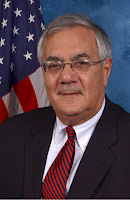 Loan servicers’ star may be quickly fading in Washington. In a stunning reversal of course, Representative Barney Frank (D-Mass.), Chairman of the House of Representatives Committee on Financial Services, and Senator Christopher Dodd (D-Conn.), Chairman of the Senate Committee on Banking, Housing and Urban Affairs, issued a letter last week urging bank regulators to investigate whether mortgage servicers are resistant to modifying loans due to the issues surrounding their holdings in second lien mortgages. The Senators accused the servicers of “unwillingness…to extinguish their liens as required for participation in [the Hope For Homeowners] program, even in return for offers of reasonable compensation.” The letter also suggested that servicers may be overvaluing these assets on their balance sheets, resulting in “inadequate reserving” that skewed the financial picture of banks in general.
Loan servicers’ star may be quickly fading in Washington. In a stunning reversal of course, Representative Barney Frank (D-Mass.), Chairman of the House of Representatives Committee on Financial Services, and Senator Christopher Dodd (D-Conn.), Chairman of the Senate Committee on Banking, Housing and Urban Affairs, issued a letter last week urging bank regulators to investigate whether mortgage servicers are resistant to modifying loans due to the issues surrounding their holdings in second lien mortgages. The Senators accused the servicers of “unwillingness…to extinguish their liens as required for participation in [the Hope For Homeowners] program, even in return for offers of reasonable compensation.” The letter also suggested that servicers may be overvaluing these assets on their balance sheets, resulting in “inadequate reserving” that skewed the financial picture of banks in general.
This warning shot across the servicers’ bow comes less than two months after Frank and Dodd marched the Helping Families Save Their Homes (HFSTH) Act through Congress waving the flag of servicer safe harbor. Though the HFSTH Act had the goal of reducing residential mortgage foreclosures by encouraging loan modifications, the bill also featured a Servicer Safe Harbor provision that provided legal immunity and generous incentives to mortgage servicers (the four largest being J.P. Morgan Chase, Wells Fargo Bank, Citibank and Bank of America) to modify mortgages and extinguish second liens. In the process, the bill dumped the costs of the modifications on the investors holding these mortgages, despite the fact that servicers were also frequently the lenders that pumped out these troubled loans in the first place. Apparently, these incentives have not been enough to induce servicers to participate in Hope For Homeowners, as Frank and Dodd are now turning on the banks they fought so hard to protect.
At the outset of the foreclosure crisis, Frank and other congressmen heaped the blame on bondholders, such as Bill Frey, who had simply insisted on their contracts being enforced. Because investors refused to allow the terms of the mortgages backing their investments to be modified willy-nilly, they provoked the ire of the House Financial Services Committee.
In this letter to Frey, Frank and five other congressmen expressed outrage that Frey would oppose their efforts to modify mortgages, and “strongly urge[d]” Frey to reverse his position. They further invited Frey to testify, but when Frey took them up on their invitation, they changed their minds. Deprived of the chance to be heard, Frey wrote this letter to the congressmen instead, pointing out that servicers “have financial incentives to avoid foreclosure…even if it creates greater losses for the mortgage investor.” More recently, Frey wrote this scathing op-ed piece in the Washington Times, criticizing the Safe Harbor and breaking down in concise terms the conflict of interest inherent in giving servicers the keys to the modification henhouse.
Though Frank and his colleagues may not have wanted to listen to Frey at first, it seems that they’re beginning to realize that servicers have strong motives to act contrary to the interests of investors, borrowers, and the rest of the country. Why it took politicians with a supposed expertise in this field so long to really delve into this issue is beyond me, but partisanship and campaign finance may certainly have come into play (after all, the Helping Families Save Their Homes Act was introduced by two congressmen high on Bank of America’s payroll).
While I’m encouraged that legislators appear to finally be unraveling the complexities involved in cleaning up these toxic assets, I’m disappointed that their first solution was to shout and wave a big stick in the hopes of pushing through their “plan.” Fixing a problem of this magnitude involves understanding the players and what makes them tick, not bullying people into compliance. And it starts with a willingness to listen without bias, not a coddling of constituency.


